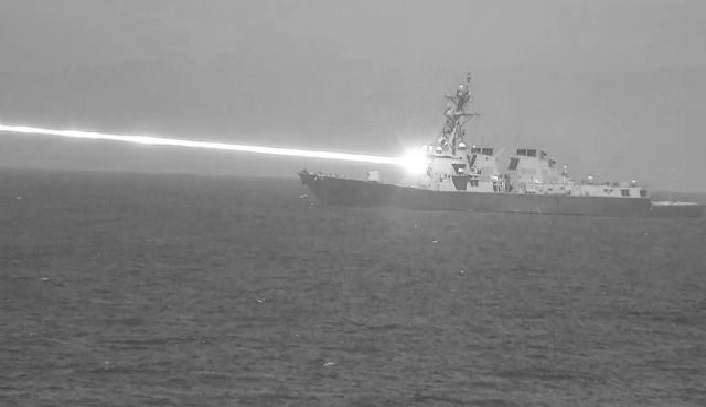Russia Shifts Focus to Libya as Strategic Foothold in Africa Amid Changing Dynamics in Syria

The recent fall of Bashar al-Assad, Russia's long-time ally in Syria, has upended Moscow’s strategy for the Mediterranean and Africa. As the political and military landscape in Syria shifts under the leadership of Ahmed al-Sharaa, the Kremlin appears to be recalibrating its regional ambitions, with Libya emerging as a potential strategic alternative. This transition underscores Russia's broader intent to maintain its influence in Africa while navigating geopolitical challenges in the Mediterranean and Middle East.
Russia's Syrian Strategy Under Threat
For years, Russia relied on its presence in Syria to project power in the Mediterranean and support operations in sub-Saharan Africa. Military installations like the Tartus naval port and Hmeimim airbase provided Moscow with critical infrastructure to coordinate activities in regions like the Sahel, Sudan, and the Central African Republic.
However, the fall of Assad has shaken this model. Despite assurances from Syria's new leader that Russia remains a valued ally, the changing power dynamics have made Russia's continued dominance in Syria uncertain. This vulnerability has led Moscow to explore new avenues to sustain its influence in the region, with Libya standing out as a viable option.
Libya as Russia's Next Launchpad
In Libya, Russia’s involvement is already evident through its support for Khalifa Haftar, the commander controlling eastern Libya. Haftar’s forces are engaged in a protracted conflict with the Tripoli-based Government of National Unity (GNU), which enjoys United Nations recognition and backing from Turkey.
This support has manifested through the Wagner Group, a Russian paramilitary organization linked to the Kremlin. In 2024, Russian activities were documented at multiple Libyan sites, including the strategically significant Tobruk port. Reports suggest that military equipment, including advanced S-300 and S-400 air defense systems, has been transferred from Syria to Libya. Additionally, the number of Russian troops in Libya surged from 800 in early 2024 to approximately 1,800 by May of the same year.
Libya's role is critical to Russia's larger strategy of retaining a foothold in Africa. By establishing a presence in Libya, Moscow aims to disrupt Western interests, exploit Libya's internal divisions, and solidify its influence across the continent.
Challenges and Opportunities
Despite its strategic significance, Libya poses unique challenges for Russia. Unlike Syria, where Moscow operated with minimal international scrutiny, Libya's fractured political landscape and active Western and regional involvement complicate Russian operations. The United States and European Union have closely monitored Russian movements, with NATO expressing concern over a potential Russian military installation in Tobruk.
Compounding the complexity is Turkey's involvement. A staunch supporter of the Tripoli government, Turkey has established a significant military and economic presence in Libya. However, Ankara has recently shown signs of pragmatism, exploring opportunities for collaboration with Haftar. This delicate balance of power requires Russia to navigate carefully to avoid direct confrontations with competing actors like Turkey, Egypt, and the United Arab Emirates.
Additionally, Russia faces limitations in its ability to replicate the autonomy it enjoyed in Syria. Libya's political landscape is more transparent, with greater international oversight. This visibility limits Moscow's ability to operate covertly, making its actions more susceptible to external pushback.
Strategic Implications for Africa
Libya’s importance extends beyond its borders, serving as a gateway to Africa. Moscow views Libya as a springboard for its activities in resource-rich regions like the Sahel and sub-Saharan Africa. The Kremlin’s long-term objective remains the expansion of its geopolitical footprint in Africa, leveraging partnerships with local actors to challenge Western influence.
However, the reliance on Khalifa Haftar carries inherent risks. As one expert noted, Russia must avoid repeating the mistakes made in Syria, where its strategy relied heavily on a single leader. Should Haftar falter or shift allegiances, Moscow would need a contingency plan to preserve its investments and influence.
A New Chapter in Geopolitics
Russia’s pivot to Libya reflects its broader strategy of adapting to geopolitical realities while safeguarding its interests. Though the path ahead is fraught with challenges, Libya offers Moscow a critical opportunity to maintain its foothold in Africa and counter Western influence in the Mediterranean.
As the situation unfolds, it remains to be seen whether Moscow can navigate Libya’s complex political landscape as effectively as it did in Syria. For now, Libya is poised to become the centerpiece of Russia’s efforts to reshape its strategic influence across Africa and beyond.



